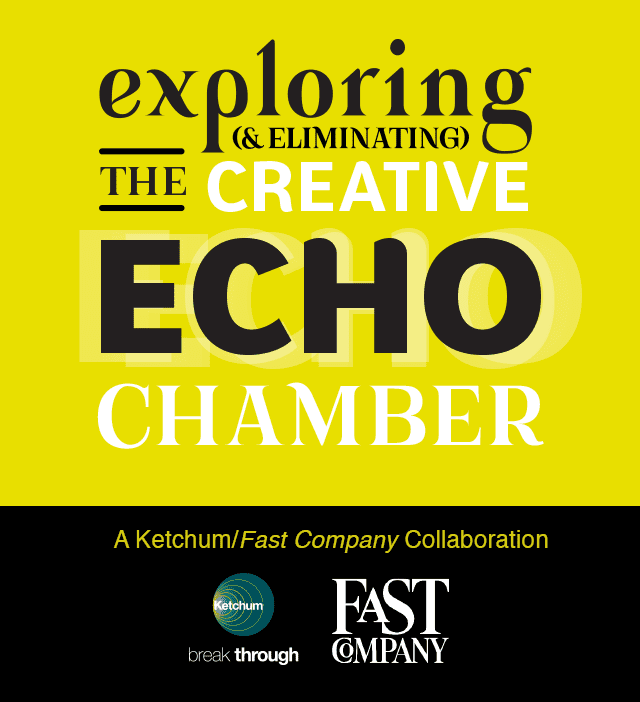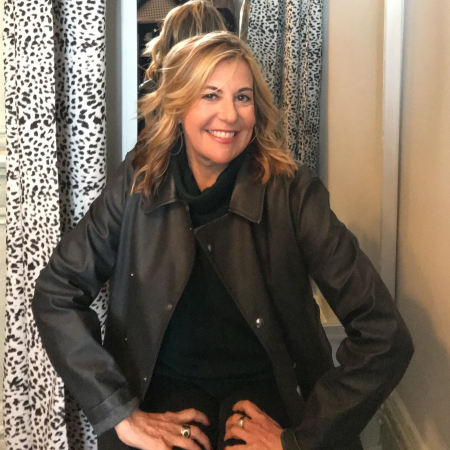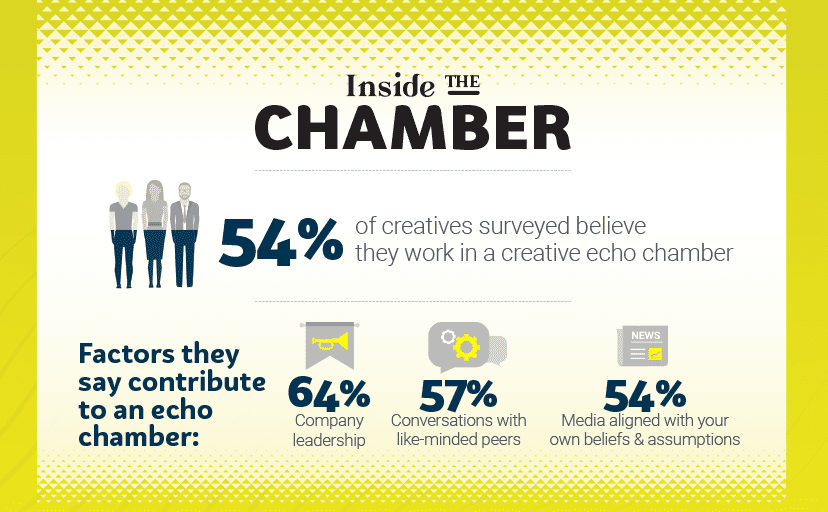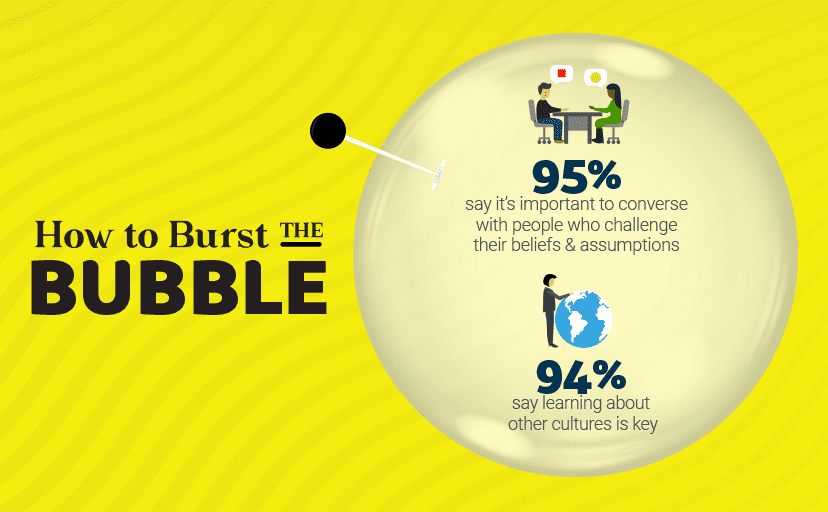 With all the evidence that echo chambers polarize society by affirming people’s beliefs, it had to be asked whether this phenomenon is also warping creativity.
With all the evidence that echo chambers polarize society by affirming people’s beliefs, it had to be asked whether this phenomenon is also warping creativity.
Simply put, it is. And the reasons are complex, extending far beyond our reliance on like-minded people and media that echo back what we already think or want to hear.
A new Ketchum-Fast Company survey of creative professionals reveals that most creatives believe they are working in an Echo Chamber because diverse views are insufficiently encouraged or heard in most workplaces.
Why is this still happening in 2017?
The clue seems to be an entrenched habit of hiring and working alongside people with similar backgrounds, training and work experiences, probably because that somehow seems easier and more comfortable. And because it’s so often done subconsciously.
But clannishness, cronyism and hierarchy are especially perilous to originality when you consider that survey respondents overwhelmingly said it is work experience (70 percent) and personal experience (61 percent) that most influence which ideas get green lighted, with gender (26 percent) and race (25 percent) trailing as factors. Age too plays a role. Senior creatives call the shots, yet junior creatives offer the braver ideas, according to the research.
Consider the ramifications of this creative echo chamber: when creative affirmation comes from people more or less like you, ideas become homogenized and tainted by bias.
As a creative director, this is alarming. I’m already concerned that social media has limited my interactions with people who disagree with me by filtering out viewpoints that diverge from my own. Let’s face it, the flow of self-affirming content and “likes” can be intoxicating, while blinding us to a narrow set of inputs and perspectives. Without hiring or tapping divergent thinkers, conformity and groupthink produce ideas that all start sounding alike.
And isn’t that the very opposite of what creativity is?
Breaking out of the creative echo chamber requires a number of paradigm changes. We need to make diversity hiring goals more explicit; end nepotism, cronyism and referral-based hiring; hire for curiosity over experience; hire from outside the industry; recruit internationally; eliminate insider jargon from employment ads; and increase blind hiring practices. I’m proud Ketchum created Launchpad, a “resume-blind” platform for recruiting and hiring summer interns that has increased ethnically-diverse hires by 17 percent with a quarter of the Summer Fellows joining us without prior relevant work experience – a step toward building a less homogeneous next gen workforce.
Among tenured creatives, we must learn more about other cultures and wake up to unconscious bias. For me, unconscious bias training was life-changing, now giving me pause each time I allow my heritage or upbringing to influence the ideas I develop or favor.
The Creative Echo Chamber not only merits a considerable shift in recruiting processes, but also a shift in company cultures. Inviting different perspectives, ideas and opinions – often uncomfortable ones – is both a creativity solution and a business imperative.
A note on the opportunity for PR to expand diversity of thought. By Thomas Cleary, Account Supervisor, and winner of our Ketchum Cannes contest by addressing the Echo Chamber…
“It feels as though the world is becoming more and more polarized as like-minded people congregate in homogeneous enclaves. As creative professionals and communicators, we have an important opportunity and responsibility to encourage conversations between people from different backgrounds and vantage points. And at work, I’m convinced our ideas will be even better and our colleagues will be even more engaged when they break free of echo chambers and cross-pollinate.”
Follow @KetchumPR throughout Cannes and join the conversation on our #InspiredbyCannes social hub!





